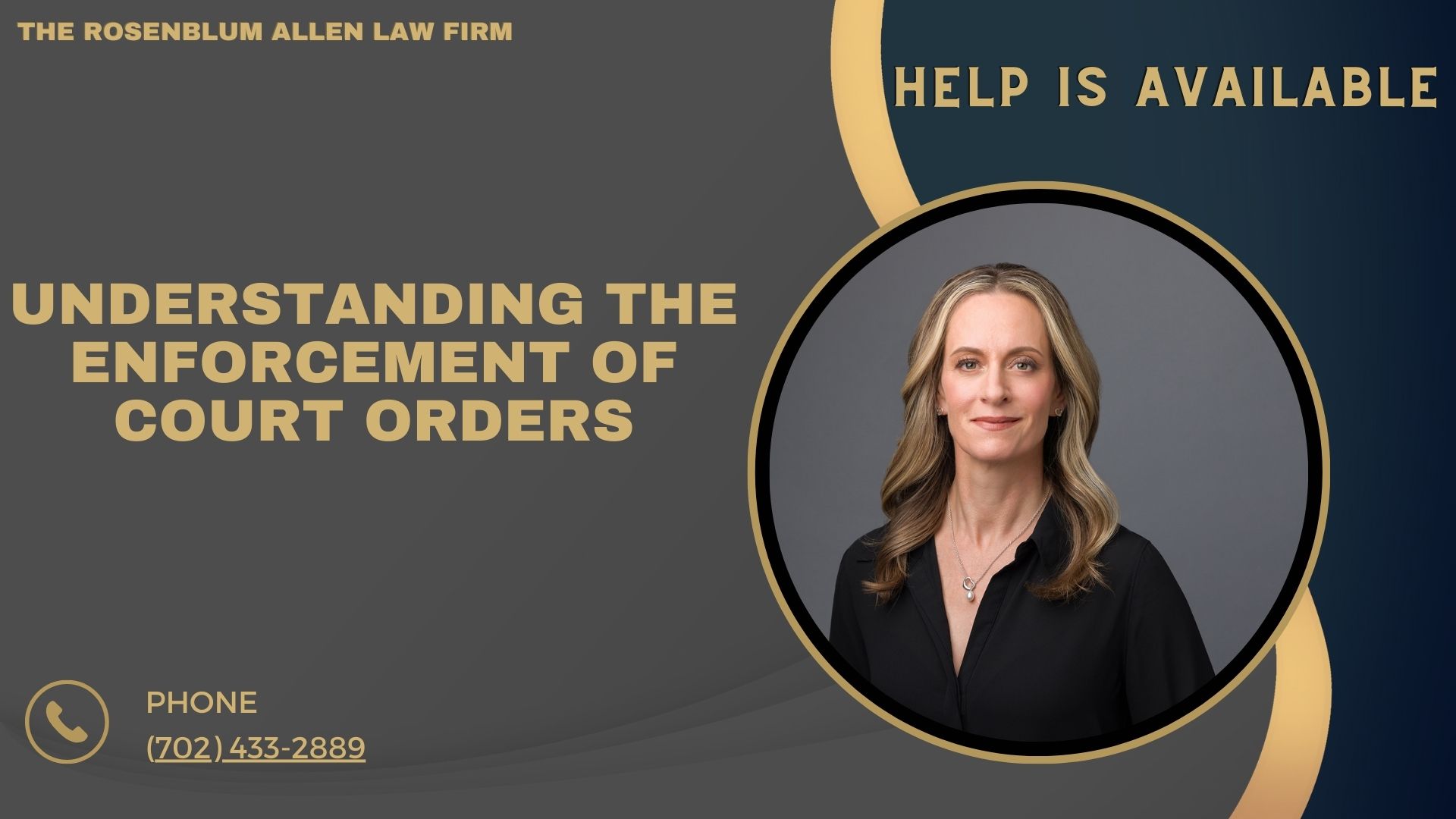In the legal realm, court orders are important. They dictate many parts of people’s lives. Understanding the enforcement of court orders is paramount. It is also key to ensuring compliance and upholding legal integrity.

 What Are Court Orders?
What Are Court Orders?
Court orders are directives issued by a court. They legally bind people to do certain actions. Or, to refrain from specific actions. They encompass various matters, including judgments, decrees, and injunctions. Courts issue many types of orders. These include orders about child custody, spousal support, and restraining.
Legal Basis for Enforcement
Authority of Court Orders
Court orders get their authority from the judicial system. They force parties to follow them. Stare decisis is a legal principle. It makes court orders binding. It emphasizes the importance of precedent.
Contempt of Court
Contempt of court happens when people defy court orders. They undermine the authority of the judicial process. It can be civil or criminal. Penalties range from fines to jail. Civil contempt aims to coerce compliance, while criminal contempt punishes willful defiance.

Process for Enforcing Court Orders
Knowing the steps is crucial. They are key to success when enforcing a court order.
Filing a Motion for Enforcement
Gather Documentation: Collect all relevant court orders, correspondence, and evidence supporting your need for enforcement.
Draft the Motion: Prepare a formal written request to the court outlining the specifics of the court order violation and the relief sought.
File with the Court: Submit the motion to the appropriate court clerk and any required filing fees.
Serve the Other Party: Ensure the opposing party receives notice of the motion according to legal service requirements.
Court Hearing
Preparation: Consult with your attorney to prepare for the court hearing, reviewing your arguments and evidence.
Presenting Your Case: Articulate your position clearly and concisely before the judge, providing supporting evidence and legal arguments.
Responding to Opposition: Address any counterarguments or defenses raised by the opposing party, emphasizing the importance of compliance with the court order.
Judicial Decision: We are awaiting the judge’s ruling on the motion, which may involve granting enforcement remedies or further proceedings.

Possible Remedies for Enforcement
Enforcement remedies compel compliance with court orders. They may vary based on the case’s specific circumstances.
Wage Garnishment: Court-ordered deduction of wages to satisfy financial obligations outlined in the court order.
Property Liens: Placing a lien on the property of the non-compliant party to secure payment or performance.
Contempt Sanctions: Imposing fines, community service, or imprisonment for willful violation of court orders.
Understanding these enforcement tools helps people to pursue legal remedies well. These tools ensure the enforcement of their rights as the court decided.
Challenges and Considerations
Enforcing court orders may face challenges. They need careful navigation to achieve the desired outcomes.
Defenses Against Enforcement
When facing enforcement proceedings, parties may raise defenses. They do this to contest compliance with court orders.
Lack of Capacity: Arguing that the party could not comply with the court order due to incapacity or disability.
Change in Circumstances: Demonstrating significant changes in circumstances warranting modification or non-enforcement of the court order.
Good Faith Efforts are showing genuine attempts to comply with the court order but facing obstacles beyond one’s control.
Knowing these defenses helps parties to expect challenges. It lets them strategize well to beat them.
Modifying Court Orders
Sometimes, court orders must change. This is to address new situations or solve enforcement issues.
Petition for Modification: Filing a formal request with the court to modify the terms of the existing court order.
Demonstrating Substantial Change: Presenting evidence of significant changes in circumstances justifying the need for modification.
Judicial Review: Attending a court hearing where the judge evaluates the merits of the modification request and decides.
Changing court orders is proactive. It helps with enforcement challenges. It ensures that orders stay relevant and practical.

Out-of-Court Settlement
Exploring out-of-court settlement options can provide an alternative resolution to enforcement disputes.
Negotiation: Engaging in discussions with the opposing party to reach a mutually acceptable agreement on compliance with the court order.
Mediation: Utilizing a neutral third-party mediator to facilitate constructive dialogue and assist parties in finding common ground.
Settlement Agreement: Formalizing the terms of settlement in a written agreement, which may be enforceable by the court.
Settling can save time, costs, and stress. Enforcing a judgment is long and stressful.
Consequences of Non-Compliance
Not following court orders can have big consequences. It affects both the party that doesn’t comply and the legal system’s integrity.
Penalties for Non-Compliance
The courts impose penalties to deter non-compliance. They also uphold the authority of court orders.
Fines: Monetary penalties levied against the non-compliant party for each violation of the court order.
Imprisonment: Jail or prison sentences may be imposed for persistent or egregious violations of court orders.
Community Service: Court-ordered community service as an alternative to fines or imprisonment, requiring the non-compliant party to perform designated tasks for the benefit of the community.
Long-Term Effects
Beyond immediate penalties, non-compliance with court orders can have enduring repercussions.
Damage to Reputation: Non-compliance negatively impacts an individual’s reputation and credibility, potentially impacting personal and professional relationships.
Future Legal Proceedings: Previous instances of non-compliance may influence the outcome of future legal proceedings, including custody disputes or civil litigation.
Contempt of Court Record: A history of contemptuous behavior may be documented in court records, serving as a lasting reminder of past non-compliance.
Understanding the potential consequences is key. They show the importance of obeying court orders. Quickly and carefully, they must do it.

Breaking It All Down
Understanding the processes is key. Challenges and consequences are also crucial. They matter for achieving good outcomes and upholding the law. Individuals can protect their rights by following court orders and meeting legal duties. Doing so also keeps them credible and helps build a fair society.
Key Takeaways
Knowledge is Power: Educating oneself on the enforcement mechanisms and legal principles surrounding court orders empowers individuals to navigate legal proceedings effectively.
Proactive Approach: Addressing enforcement issues promptly and proactively can mitigate potential consequences and facilitate resolution.
Seek Legal Guidance: Consulting with experienced legal professionals can provide invaluable guidance and advocacy throughout the enforcement process.
Compliance Matters: Upholding court orders ensures legal compliance and fosters trust and respect within the judicial system and the community.
Moving Forward
People face enforcement challenges on their legal journey. It’s essential to approach them with diligence, patience, and a commitment to justice. By embracing these principles, people can enforce court orders with confidence and integrity. This will help build a fair, accountable society based on the rule of law.

Frequently Asked Questions
What are the steps to enforce a court order?
To enforce a court order, you must file a motion with the court, gather evidence, attend a hearing, and await the judge’s decision.
What are some common defenses against enforcing court orders?
Common defenses include lack of capacity, change in circumstances, and reasonable faith efforts to comply.
How can I modify an existing court order?
You can modify a court order by filing a petition for modification, demonstrating a substantial change in circumstances, and attending a judicial review.
Is there a way to resolve disputes without going to court?
You can explore out-of-court settlement options through negotiation or mediation for a more efficient resolution.
What are the potential consequences of not complying with court orders?
Non-compliance can result in penalties, reputation, and future legal proceedings.
How can I effectively navigate challenges in enforcing court orders?
For effective navigation, it’s essential to educate yourself, seek legal guidance, and address challenges promptly and proactively.

Additional Resources for You
Don’t forget that our lead attorney, Molly Rosenblum Allen, Esq, has also created additional resources to assist you in your time of need:
Criminal Defense Attorneys: For comprehensive legal defense in criminal cases.
Las Vegas DUI Lawyer: Dedicated representation for DUI charges.
Domestic Violence Lawyer Las Vegas: Specialized legal support for domestic violence cases.
Drug Possession Lawyer: Effective defense against drug possession charges.
Sex Crimes Attorney: Compassionate and strategic defense for sex crime allegations.
CPS Defense Attorney: Advocacy for cases involving child abuse and neglect accusations.
Misdemeanor Lawyer: Legal representation for misdemeanor offenses.
Las Vegas Warrant Defense Attorney: Assistance in resolving warrant issues.
Las Vegas Probation Violation Attorney: Guidance for navigating probation violation charges.
Theft Crime Defense Lawyer: Defense strategies for theft-related allegations.
Kidnapping Lawyers: Legal support for cases involving kidnapping charges.
Juvenile Defense Lawyers: Representation tailored to juvenile legal matters.
Firearms Lawyer Las Vegas: Advocacy for cases involving firearms offenses.

Outside Resources for You
Here are some offsite resources related to the content that you may find useful:
American Bar Association (ABA): Provides resources and information on various legal topics, including court procedures and legal rights.
FindLaw: Offers legal information, articles, and resources on a wide range of legal issues, including enforcement of court orders and criminal defense.
NOLO: Provides legal guides, articles, and resources for individuals navigating the legal system, including information on criminal law and family law.
LegalMatch: Connects individuals with experienced attorneys specializing in various practice areas, including criminal defense and family law.
Avvo: Offers legal advice, attorney reviews, and Q&A forums for individuals seeking legal assistance, including guidance on enforcement of court orders.
LawInfo: Provides legal resources, articles, and attorney listings for individuals seeking legal representation or information on legal matters.
Justia: Offers legal resources, articles, and case law information for individuals navigating the legal system, including information on criminal defense and family law.

A Special Message from Our Lead Attorney, Molly Rosenblum Allen, Esq

Thank you for taking the time to explore our resources! I hope you found them helpful. Please don’t hesitate to reach out if you have any legal concerns or need further help. You can schedule a free consultation by calling (702) 433-2889. We look forward to assisting you!


